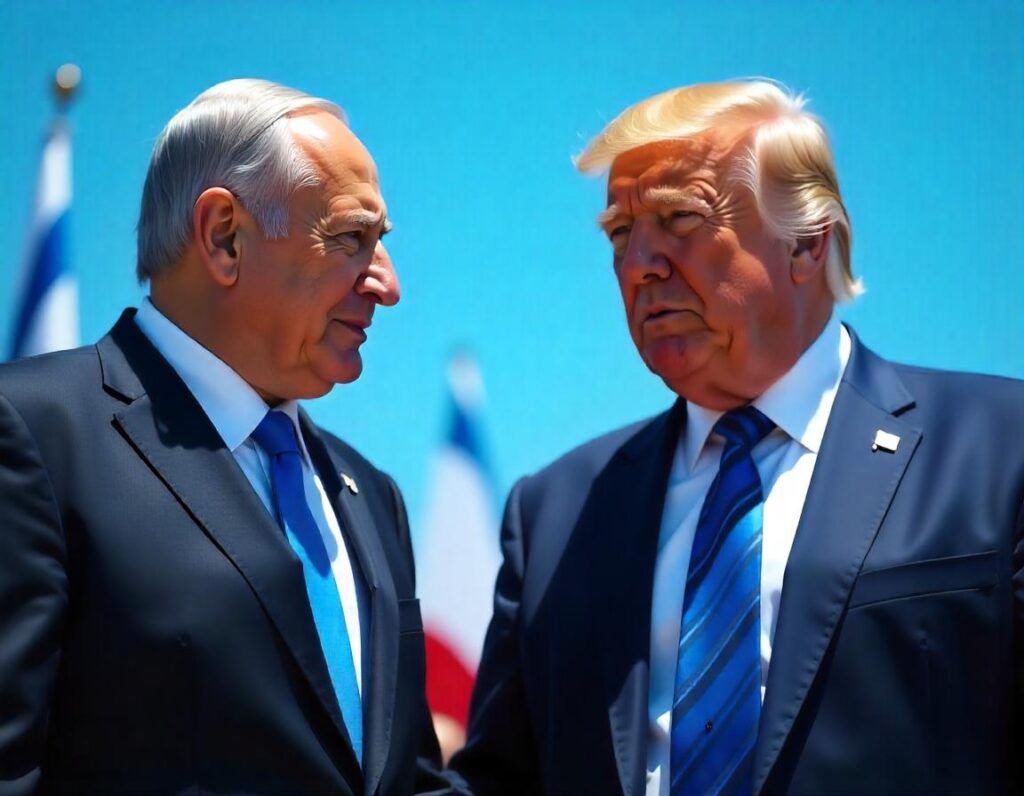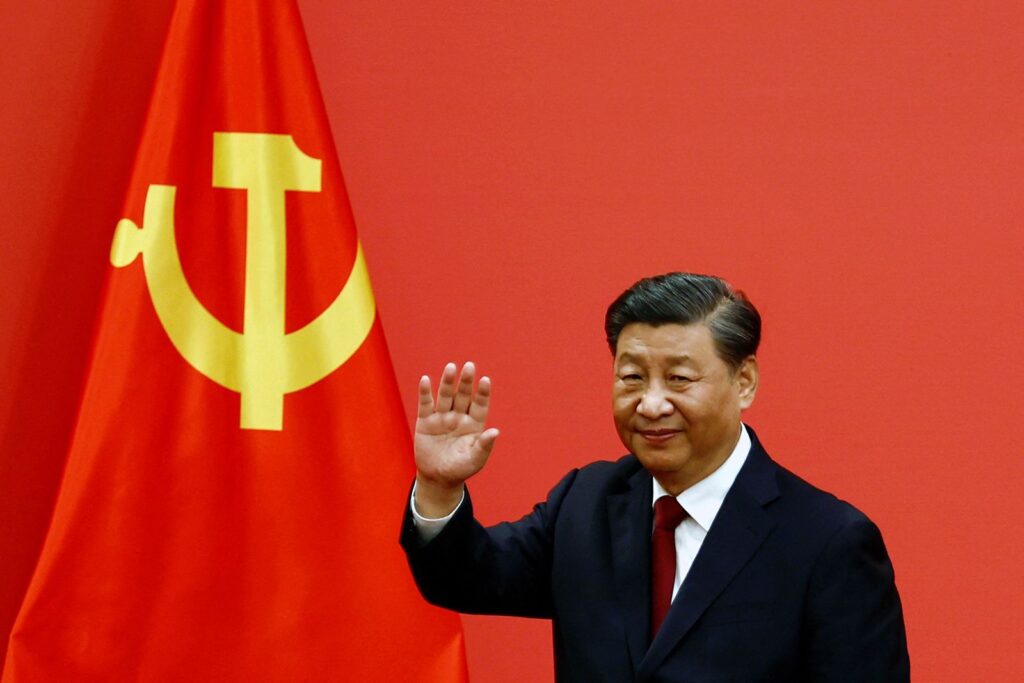
Israel Refuses to Withdraw from Gaza-Egypt Border as It Sends Team for Ceasefire Talks
Israel has stated that it will not withdraw its forces from the Gaza-Egypt border, despite this being a requirement for the second phase of a ceasefire agreement with Hamas. At the same time, Israel is sending a delegation for negotiations.
“We will not exit the Philadelphi Corridor,” an Israeli source told CNN, referring to the 14-kilometer (8-mile) strip along the border. “We will not allow Hamas militants to roam again with trucks and rifles on our borders, and we will not let them strengthen themselves again through smuggling.”
The announcement comes just days before the first phase of the Israel-Hamas hostage-ceasefire agreement is set to expire and shortly after Hamas handed over the final hostages due for release under this initial phase.
In response, Hamas stated that Israel’s refusal to withdraw from the Gaza-Egypt border would be “a clear violation of the ceasefire agreement and an attempt to fabricate excuses to obstruct and derail it.”
Negotiations for extending the current 42-day ceasefire into a second phase were supposed to have started more than three weeks ago.
Israeli Prime Minister Benjamin Netanyahu’s office confirmed on Thursday that a “negotiating delegation” was being sent to Cairo to continue discussions. However, it remains unclear whether the talks will focus on the second phase of the ceasefire, which includes a full Israeli withdrawal from Gaza, or merely an extension of the current phase.
Indicating that negotiations will not take place at the highest level, the head of Israel’s negotiating team, Strategic Affairs Minister Ron Dermer, will not be traveling to Cairo, according to the Israeli prime minister’s spokesperson, Omer Dostri.
The first phase of the agreement, which has so far led to the release of 38 hostages held by Hamas in exchange for thousands of Palestinian prisoners and detainees in Israel, is set to expire on Saturday.
An Israeli source familiar with the discussions told CNN that Netanyahu aims to extend this first phase for as long as possible to secure the release of additional hostages without committing to a withdrawal from Gaza.
Former military chief Benny Gantz, who left the unity government last year, criticized Netanyahu’s approach, accusing him of acting based on “political interests” rather than national security.
“The priority of the State of Israel should be to bring back as many hostages as quickly as possible,” Gantz said while visiting northern Israel. “One comprehensive exchange, not in drips and drabs.”
According to Hamas official Mahmoud Mardawi, Israel was expected to begin withdrawing from the Philadelphi Corridor on Saturday—day 42 of the ceasefire—with the process concluding on March 9, the 50th day.
The Israeli military took control of the corridor, which runs along the Egyptian border, in May. Prime Minister Netanyahu has repeatedly insisted that maintaining control of this area is critical to Israel’s security.
Under the proposed second phase of the ceasefire, Israel would withdraw all its forces from Gaza, including from the border with Egypt, in exchange for Hamas releasing all remaining living hostages.
Following the release of the last four deceased hostages on Thursday, Hamas reaffirmed its commitment to negotiating the second phase.
“Any attempts by Netanyahu and his government to backtrack on the agreement and obstruct it will only lead to more suffering for the prisoners and their families,” Hamas warned.

The Significance of Germany’s Elections and the Election of Friedrich Merz in Global Politics
Germany’s elections always carry significant weight beyond its borders. As Europe’s largest economy and a key player in international alliances, its political shifts influence economic strategies, defense policies, and global stability. The election of Friedrich Merz marks a turning point that could reshape economic priorities, foreign relations, and security policies in ways that extend far beyond Germany’s borders.
A New Direction for Germany’s Leadership
Merz, a veteran of the Christian Democratic Union (CDU), brings a distinct political and economic philosophy compared to his predecessor. With a strong pro-business stance and a vision for a more assertive role within Europe, his leadership suggests a shift in Germany’s approach to both domestic and international challenges.
A focus on economic growth and deregulation could lead to stronger partnerships with major global economies, reinforcing Germany’s position as a key hub for investment and industrial innovation. This approach may also bring adjustments in trade relations, as policies become more aligned with competitive market strategies and industrial interests.
A More Active Role in Defense and Security
In recent years, debates over defense spending and security commitments have grown more intense. With increasing global security challenges, Germany’s role within international defense alliances is more critical than ever.
Merz’s leadership may bring a shift toward greater military investment and a stronger commitment to collective security efforts. This could lead to closer coordination with international partners, reinforcing alliances and increasing Germany’s contributions to shared defense initiatives. A more proactive stance in military affairs would also mean a reassessment of strategic priorities, particularly in response to ongoing geopolitical tensions.
Positioning in Global Power Dynamics
Germany’s relationship with major world powers is expected to undergo careful recalibration. A stronger stance on key global issues, particularly regarding economic dependencies and security concerns, could redefine existing partnerships.
Economic policies may take a more strategic approach, emphasizing national and European interests in trade, technological advancements, and critical industries. This could lead to a reassessment of supply chain dependencies and increased cooperation with partners that align with Germany’s long-term economic and security goals.
Additionally, ongoing conflicts and diplomatic challenges require a clear and decisive foreign policy. Whether through economic pressure, diplomatic engagement, or strategic military decisions, Germany’s leadership under Merz is expected to take a more structured and results-driven approach to international relations.
Impact on European Stability and Global Alliances
As a central figure in European politics, Germany’s direction influences the broader stability of the European Union. A government focused on economic strength, security, and strategic autonomy could drive changes in the EU’s policies, affecting how Europe navigates global economic challenges and security risks.
A shift toward stronger national policies may also spark discussions within the EU about balancing collective decision-making with the interests of individual member states. This dynamic will play a crucial role in shaping Europe’s future approach to trade, defense, and global diplomacy.
Conclusion
The election of Friedrich Merz represents a significant moment in Germany’s political evolution, with far-reaching implications for economic strategy, security commitments, and international partnerships. As Germany redefines its role on the global stage, the coming years will shape not only its own future but also that of key international alliances and economic relationships. How these developments unfold will be closely watched by governments and markets worldwide, as Germany’s next steps will help shape the geopolitical landscape in the years to come.

China's Current Economic Landscape and Its Position in the Global Order
As of February 2025, China stands at a critical juncture, navigating a complex economic environment while asserting its influence on the global stage. The nation’s economic performance reflects both resilience and challenges, shaped by internal reforms and external geopolitical dynamics.
Economic Performance and Challenges
In 2024, China’s gross domestic product (GDP) grew by 5%, reaching approximately 134.9 trillion yuan (about $18.58 trillion USD).
This growth, while robust, indicates a deceleration compared to previous years. Factors contributing to this slowdown include a prolonged property sector crisis, with major developers like Evergrande and Vanke facing significant financial distress.
Additionally, youth unemployment has emerged as a pressing concern, with official figures peaking at 21.3% in mid-2023, though some estimates suggest the rate could be higher.
To address these challenges, Chinese authorities have implemented measures such as injecting at least 400 billion yuan ($55.13 billion) into major banks to bolster liquidity and stimulate economic activity.
Furthermore, the government is focusing on boosting domestic consumption and reducing reliance on exports, aiming for a more sustainable economic model.
Geopolitical Dynamics and Global Positioning
China’s role in the global order is evolving amidst shifting geopolitical landscapes. The re-election of U.S. President Donald Trump has introduced new complexities, particularly concerning trade relations. The Trump administration’s imposition of additional tariffs on Chinese goods has prompted China to seek deeper economic ties with other nations, especially within the Global South, to mitigate the impact of reduced access to Western markets.
In line with its vision for a multipolar world, China is advocating for the expansion of international coalitions like BRICS, aiming to enhance the representation and influence of developing countries in global governance.
This strategy reflects China’s commitment to reshaping international institutions to better align with the interests of emerging economies.
Technological Advancements and Self-Reliance
Technological innovation remains a cornerstone of China’s strategic objectives. The successful launch of the DeepSeek R1, an advanced AI model developed without reliance on American semiconductor chips, underscores China’s progress in achieving technological self-sufficiency.
This milestone is part of the broader „Made in China 2025“ initiative, which aims to position China as a leader in high-tech industries, including electric vehicles, aerospace, and robotics.
Conclusion
China’s current economic and geopolitical trajectory is marked by a blend of challenges and strategic initiatives. While facing internal economic pressures and external trade tensions, the nation is actively pursuing policies to stimulate domestic growth, enhance technological independence, and redefine its role within the global order. The coming years will be pivotal as China navigates these complexities, striving to maintain economic stability and expand its international influence.
